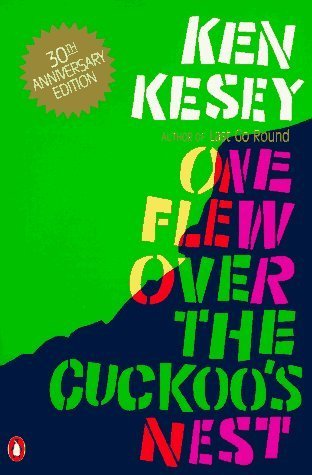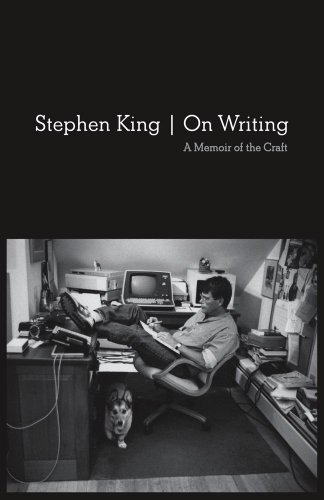Michael E. Henderson's Blog: Henderson's The Literary Man, page 4
September 14, 2015
Flash Fiction: The Void
Jim Lane laughed as one man hit the other over the head with a shovel.
"Goddamn, Bill, this movie's funny. You seen it?"
"Yes, Jim, but I do not see the humor."
"That’s because you're a robot."
"I am programmed to understand humor."
The pale blue light from the video screen illuminated the robot's shiny fake skin.
"You know, women don't get this humor, either. Maybe you were made female. That's not exactly a bulge you're sporting under those tights."
An alarm sounded. Jim silenced it as the ship jol...
June 20, 2015
Story Structure in "One Flew Over the Cuckoo's Nest," by Ken Kesey

Every writer or aspiring writer should read One Flew Over the Cuckoo's Nestand dissect it. It’s very well-written, nicely paced, and perfectly structured. It’s a study in how to construct and write a novel. The structure is what concerns us here.
A writer can learn a lot about structure from this book. Every writer struggles with structure, particularly those trying to learn the craft. We’re told that a story has a beginning, middle, and end, which is not a particularly helpful description....
May 16, 2015
Outliner or Pantster?* The Question is Irrelevant
After agonizing for years as to whether I should outline my novels in great detail, or whether I should just sit down and write them, I’ve come to realize that it doesn’t matter; the end result must be the same. It’s only a question of process.
A novel must tell a story. A story, like it or not, has a certain structure.** It must contain certain elements, such as well-developed characters, a protagonist, an antagonist (or antagonistic force), conflict, and resolution. There must be turning poi...
Outliner or Pantster? The Question is Irrelevant
After agonizing for years as to whether I should outline my novels in great detail, or whether I should just sit down and write them, I’ve come to realize that it doesn’t matter; the end result must be the same. It’s only a question of process.
A novel must tell a story. A story, like it or not, has a certain structure.* It must contain certain elements, such as well-developed characters, a protagonist, an antagonist (or antagonistic force), conflict, and resolution. There must be turning poin...
May 9, 2015
Use Only "Said" or "Asked" as a Dialogue Tag
I’m fully prepared for many of you to take exception to this one. I’ve violated it myself. But I wish I hadn’t.

The main purpose of a dialogue tag is for the reader to keep track of who’s speaking. You don’t need one after every quote, unless there are more than two people in the conversation, and it’s not clear from the context who said it.
Let’s take a few examples.
“Get out of here,” he ordered.
The sentence, “Get out of here,” is an imperative sentence. That is, it gi...
April 28, 2015
Writing Tip: Eliminate Most Occurrences of "Just"

Why make this change?
“Just” is one of those extra words that we often use in speech, but serves to clutter your writing. It’s not grammatically incorrect in most instances, but this is not about grammar. It’s about good clean writing.
There are certainly times to use it. It implies a short time, or a short distance:
He just left.
Just under his chin.
It also means “only,” or “simply.”
He just wanted a new car.
She just wanted to be left alone.
But most of the time you don’t need it, or could repla...
Kill Your Darlings
You’ve heard it many times. It’s based on a quote by William Faulkner. But what does it mean? To me, it means that if there is something in your novel you really love, whether it be a line, a scene, or a whole chapter, you are probably wrong about its quality and importance, and should delete it.
If you’re in love with it, take it out.
Why? Because in all probability, you love it because of its “writerly” sound. It’s a great descriptive sentence. It’s an exciting scene or chapter with lots of g...
April 27, 2015
Writing Tip: Delete most occurrences of the word "some."

Why make this change?
In this case I don’t say to remove all occurrences of “some,” but most of them.
There are times when the use of some makes sense, and adds to the narrative, particularly relating to its meaning of more than one, but not all:
Some of us went to the store.
Some cars are painted red.
Or it can be used for emphasis:
That was some movie.
Although even in these examples, one should consider whether there’s a better way to say it.
Generally, though, it’s another one of those extra wo...
April 24, 2015
Writing Tip: Delete (almost) all occurrences of "almost"

Why make this change?
There are times to use “almost,” but most of time a new writer uses it, they don’t need it.
If something almost happened, then you need it:
The boat almost sank.
Something happened that caused the boat to come close to sinking, but it didn’t. Okay, “almost,” or “nearly,” or “came close to,” are good.
Consider the example, “The figure is almost life-like.”
What does that mean? “Life-like” means that it looked real, but was not. For example, a portrait or, in the case of our e...
April 23, 2015
Writing Tip: Delete the "thats"
Why make this change?

This is a tricky one. Like “just” or “really,” “that” is often unnecessary. My test is if the sentence is rendered nonsense with “that,” or if the meaning would be changed without it, then keep it. Otherwise, leave it out.
For example:
The President said (that) June 1st the new law will take effect.
Without “that,” the President said it on June 1st.
With “that,” the law takes effect June 1st.
You would include/omit in this case depending on what you want the sentence to mean...
Henderson's The Literary Man
Warning: Some posts are not fit for children.
- Michael E. Henderson's profile
- 49 followers



